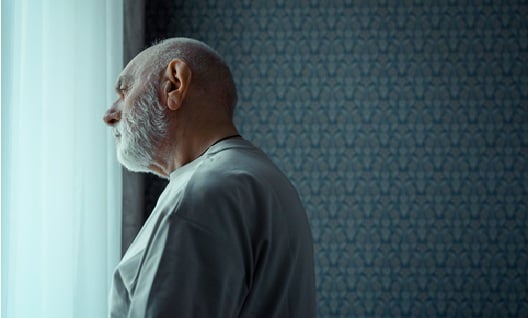LGBTQ+ older Londoners in crisis – new report exposes hidden hardship

Published on 28 April 2025 04:35 PM
Earlier this Spring I helped produce a report – entitled Precarious Lives – which explores financial hardship among older LGBTQ+ Londoners. According to the Census, a full 20% of the nation’s population of lesbian, gay, bisexual and other non-straight people – aged 55 and over – live in the capital. Despite this there has been very little research on the needs of older LGBTQ Londoners, and this is something that the report set out to change, gathering information by means of a survey and interviews.
The research, which was initiated by Opening Doors and completed by Tonic Housing, explored why older LGBTQ+ people might be especially vulnerable to hardship. Four main themes emerged, the first of which is discrimination. Previous research has shown how discrimination damages the opportunities that an individual has to earn and save, and our research demonstrates that the lifetime of discrimination that has been faced by older LGBTQ+ people can have a long-term impact on our financial wellbeing.
One thing we emphasised in the report is generational experience, because LGBTQ+ people in their 50s and above grew up in times when discrimination was historically high. For example, from the 1950s to 1970s, conversion therapy for homosexuality, including electric shock treatment, was an accepted medical practice. In addition, the 1980s and 1990s marked the peak of the AIDS crisis, with its attendant wave of hate and loss. Such experiences have a profound impact on an individual’s opportunities in life.
However, we also demonstrated that the impact of discrimination is worse for certain groups. One of these is trans and nonbinary people, and research shows that public acceptance of trans people has gone backwards in recent years. Moreover, we demonstrated that people are especially vulnerable if they have overlapping areas of disadvantage – for example, if you an older LGBTQ+ individual who is also a person of colour, or who is also disabled.
The second factor we looked at is social isolation. Previous research has shown that LGBTQ+ people are more prone to isolation as we age. It means we are less likely to receive help from social networks, including financial help, and it may be noted that older LGBTQ people are also far less likely to have children to support us than the general population. In addition, isolation means that people are less likely to access other sources of help that may be available to them, including benefits.
Of the older LGBTQ+ people who answered our survey, 36% said they would not expect any social support in the event of serious difficulties. Moreover, a full 64% of the people we spoke to were living alone, and we found that they were much more likely to be experiencing difficulties in their lives because of costs. For example, they were eight times more likely to be reducing the number of meals they ate.
The third factor we looked at is long-term health conditions, as previous research has shown that older LGBTQ+ people have notably poorer health. Long-term health conditions can have direct costs associated with them, but they can also damage an individual’s ability to work and save. The Equality Act 2010 defines disability as a condition that has substantial and long-term negative effect on the ability to do normal daily activities, and by this measure a striking 60% of the older LGBTQ+ people who answered our survey were disabled.
Notably, the LGBTQ+ disabled people who we spoke to were more than twice as likely to be finding it ‘very difficult’ to manage financially. They were also four time more likely to be using support from charities, including food banks. Finally, they were themselves more prone to social isolation – and were almost twice as likely to have no expectation of social support, in the event of serious difficulties, than non-disabled people.
The final factor we looked at is financial stress. Living in London can be double-edged for older LGBTQ+ people – we belong to generations for whom the capital offered a relatively tolerant environment, but living in London comes at a high financial cost. Moreover, many of the people we spoke to were in households with incomes of less than £15,000 per annum – less than the minimum for a socially acceptable living standard in London – and, unsurprisingly, they were often under severe financial strain.
People under particular stress included older LGBTQ+ people below the State Pension age, who were almost 50% more likely to be finding it difficult to manage financially. In addition, private renters were under particular strain – they can spend almost half their income on rent, and London has a very high proportion of renters. In our survey, older people living in rented accommodation were three times more likely to be finding it difficult to manage financially than homeowners.
Precarious Lives was an eye-opening project to work on. Our work demonstrates that a substantial number of older LGBTQ+ individuals in London experience significant financial difficulties – due to discrimination, isolation, long-term health conditions and financial stress. There seems to be a myth that persists, about the relative affluence of older LGBTQ+ people. But our research shows that the reality, for many people, is very different.
Mark Sladen is a researcher and cultural producer. Precarious Lives was a project that Mark completed while working for Tonic Housing. He is about to start working for the Centre for Mental Health.
You can read the report here.

